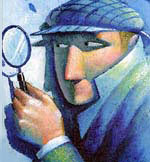
|
|
||||
|
Today is February 25th , 2026
FRAUD ALERT
QUEBECRECOMMENDATIONBooks |
FIXING BROKEN WINDOWSFixing "Broken Windows" Little Things Lead to Big Things The germ of the idea is simple and compelling. A broken window--or a littered sidewalk, a graffito, a run down building, or what you like--does no great harm to a neighbourhood if promptly addressed. But left untended, it sends a signal: that no one cares about this neighbourhood, that it is a safe place to break things, to litter, to vandalize. Those who engage in such behaviours will feel safe here. And once these minor miscreants have become well established, perhaps it will seem a safe enough neighbourhood in which to be openly drunk, in which to beg for money, and possibly extort it. In short the smallest symptoms of antisocial behavior will, left to fester, breed greater and greater crimes, all the way down to murder. A piece of property is abandoned, weeds grow up, a window is smashed. Adults stop scolding rowdy children; the children, emboldened, become more rowdy. Families move out, unattached adults move in. Teenagers gather in front of the corner store. The merchant asks them to move; they refuse. Fights occur. Litter accumulates. People start drinking in front of the grocery; in time, an inebriate slumps to the sidewalk and is allowed to sleep it off. Pedestrians are approached by panhandlers. There is an accessibility, and a sense of reasonability, about all of this. From our personal experience we can find examples--at least, of litter fostering more litter, and suchlike. It's a compelling idea, and an easy one to grasp, and indeed it took hold quite broadly: "Today," according to the New York Times, "'broken windows' policing is endorsed by police chiefs across the country, its proponents sought out for lectures and consulting around the world." The theory was explained by an Albany police officer almost as a catechism, a rote recitation of the basic elements: the broken window sends a signal to certain elements that crime is safe because nobody cares, and soon it builds up to all sorts of crime. As simple as that. The citizen who fears the ill-smelling drunk, the rowdy teenager, or the importuning beggar is no merely expressing his distaste for unseemly behaviour; he is also giving voice to a bit of folk wisdom that happens to be a correct generalization--namely, that serious street crime flourishes in areas in which disorderly behavior goes unchecked. The unchecked panhandler is, in effect, the first broken window, for the other broken window comes from the criminals that affect our society as a whole, such as and not limited to slum landlords and slum home owners. By cleaning the neighbourhood,, by maintenaining the store front so to speak, the �real� criminals eventually also get caught. White collar crime cannot grow into big business if the first broken window is looked after. Citizens and Residents of any City should take a stand when they see their neighbourhoods taking a wrong turn. Don�t wait until the prostitutes, the panhandlers and drug addicts and alcoholics have taken over your neighbourhood and don't wait until a building has turned into a slum to take action. When a City, such as Vancouver, British Columbia, goes unchecked, when the City has no minimum standards of maintenance, when city council and the city prosecutor do not enforce important bylaws, the criminals, such as slum landlords take advantage and as a result more broken windows occur because of the City's own recklessness and own unwilligness to make the city a safe, and healthy place for all residents to live in. In effect, the City of Vancouver, with a population of roughly 595,000, is the cause of broken windows. |
LEGAL ABUSE SYNDROME |
||
Justice is a conscience, not a personal conscience but conscience of the whole of the humanity.
Those who clearly recognize the voice of their own conscience usually recognize also the voice of Justice.
Alexander Solzhenitsyn

